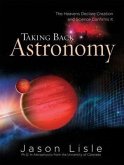Each day we are bombarded with news of a new catastrophe of worldwide proportions promising to obliterate a part, if not all, of humankind. Confronted with these warnings of impending doom, our best defense is to understand how valid--or invalid--these predictions of calamity are. By perceiving these threats in a wise and sagacious way, we can best meet future challenges by not earmarking precious resources for wrong or misleading reasons. Walter Karplus, a professor of computer sciences at UCLA, in his 35 years of experience has made predictions for all kinds of phenomena by generating models and computer simulations. His decades of experience have taught him what we can and cannot predict with any accuracy. Dr. Karplus surveys the most hotly debated catastrophes that many scientists have predicted will imminently endanger the lives of countless people all over the globe. These catastrophes include the depletion of the ozone layer, the Greenhouse Effect, nuclear radiation, acid rain, the AIDS epidemic, the population explosion, another Great Depression, and earthquakes. Drawing on his superb background, he assesses the strengths and weaknesses of arguments propounding the seriousness of these calamities. All the while, he never allows us to lose sight of the profound shortcomings of scientific prediction. In his singularly engaging manner, Dr. Karplus traces the fascinating art of prediction from our earliest ancestors to today. He pronounces at what point prediction, even within science, becomes a black art. He elucidates the problems that computer simulations have in predicting events and goes on to pinpoint when and where these models lapse into the area of pure conjecture. Throughreason and wit, Walter Karplus teaches us how to bring a trained eye to the predictions of disaster that unceasingly assault us. The Heavens Are Falling is an illuminating and entertaining work that bestows on us the wisdom to make informed judgments before taking arms against a sea of troubles.








